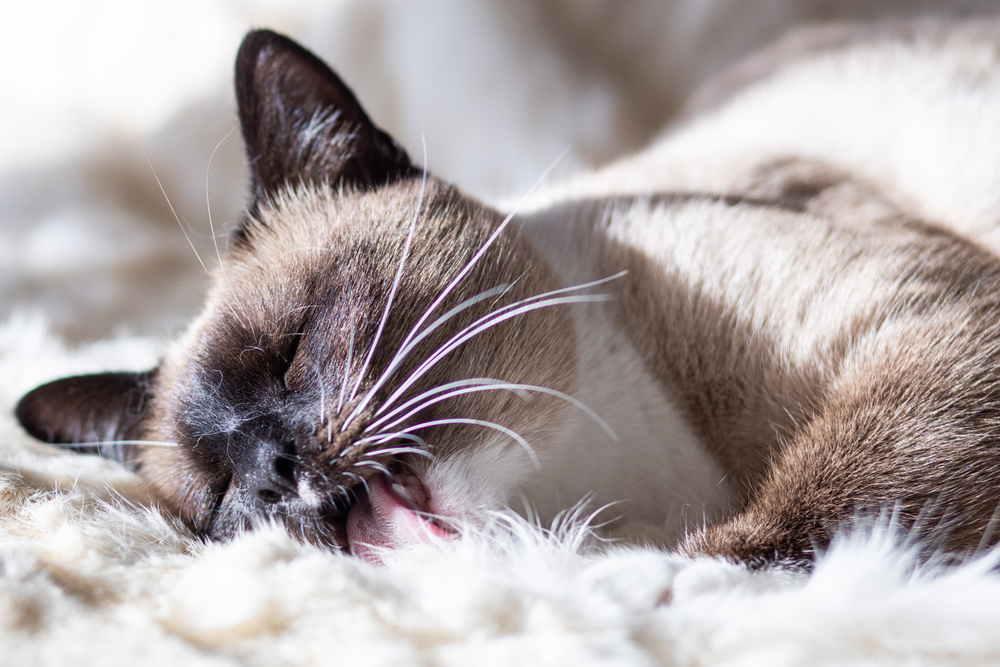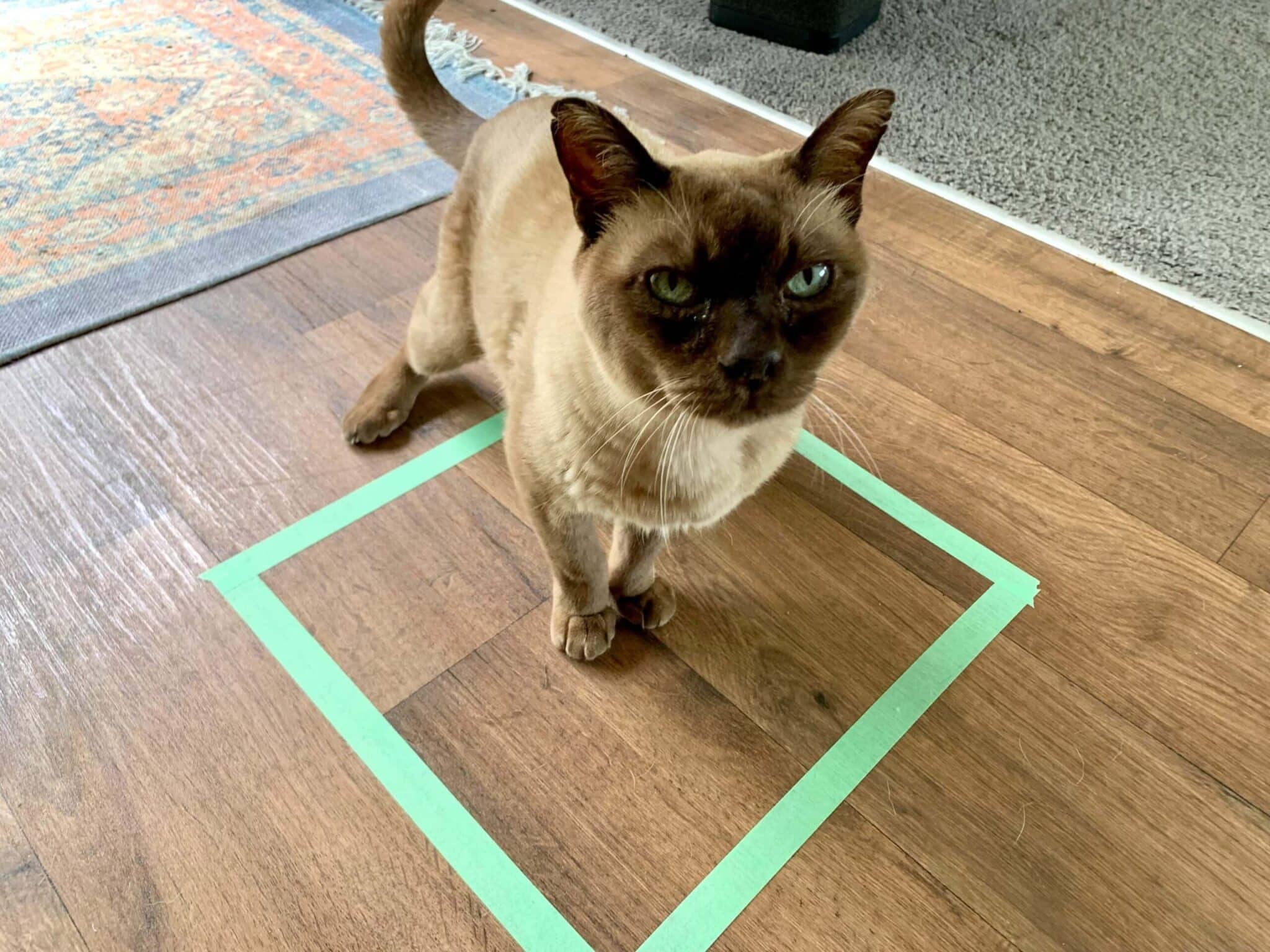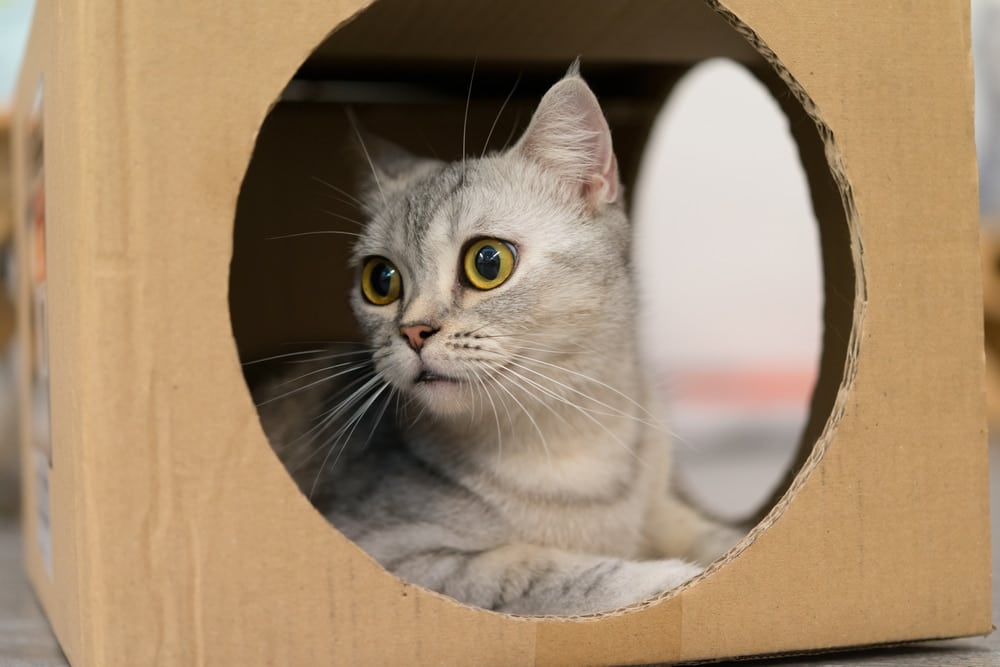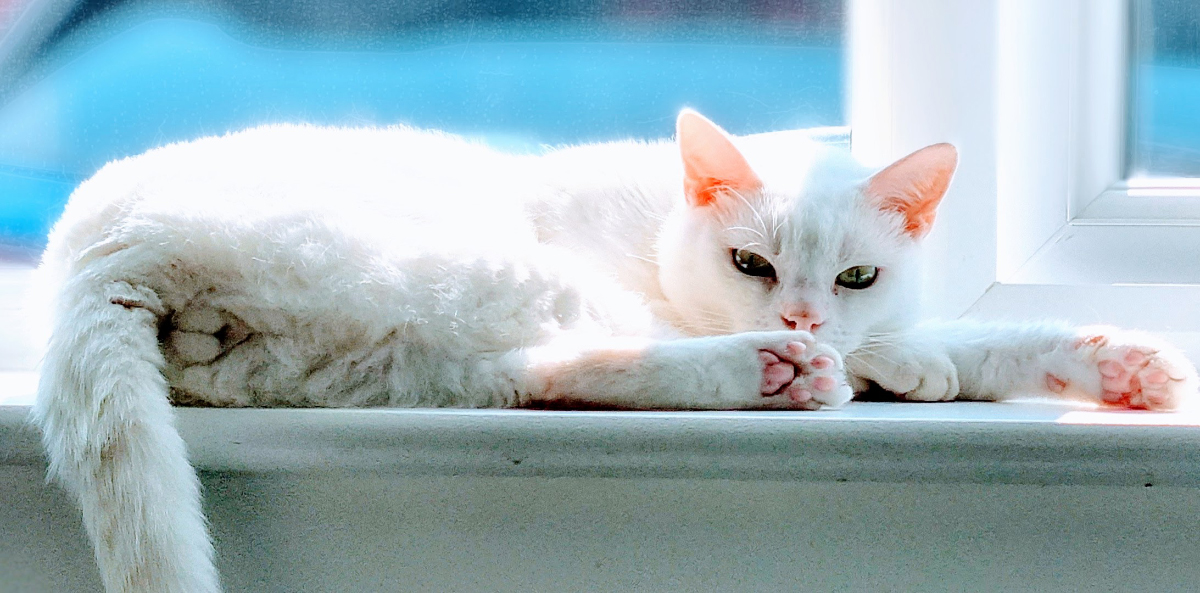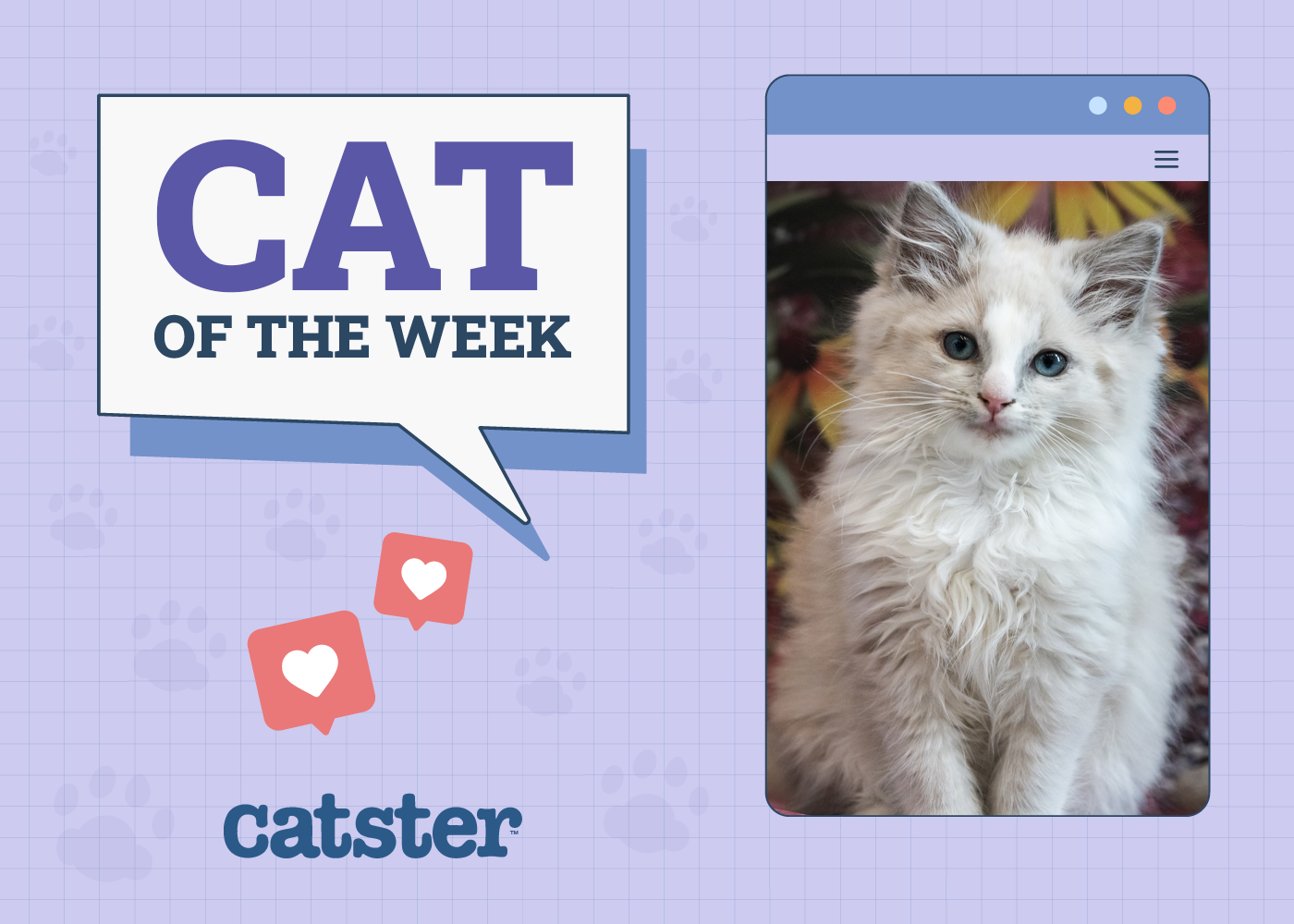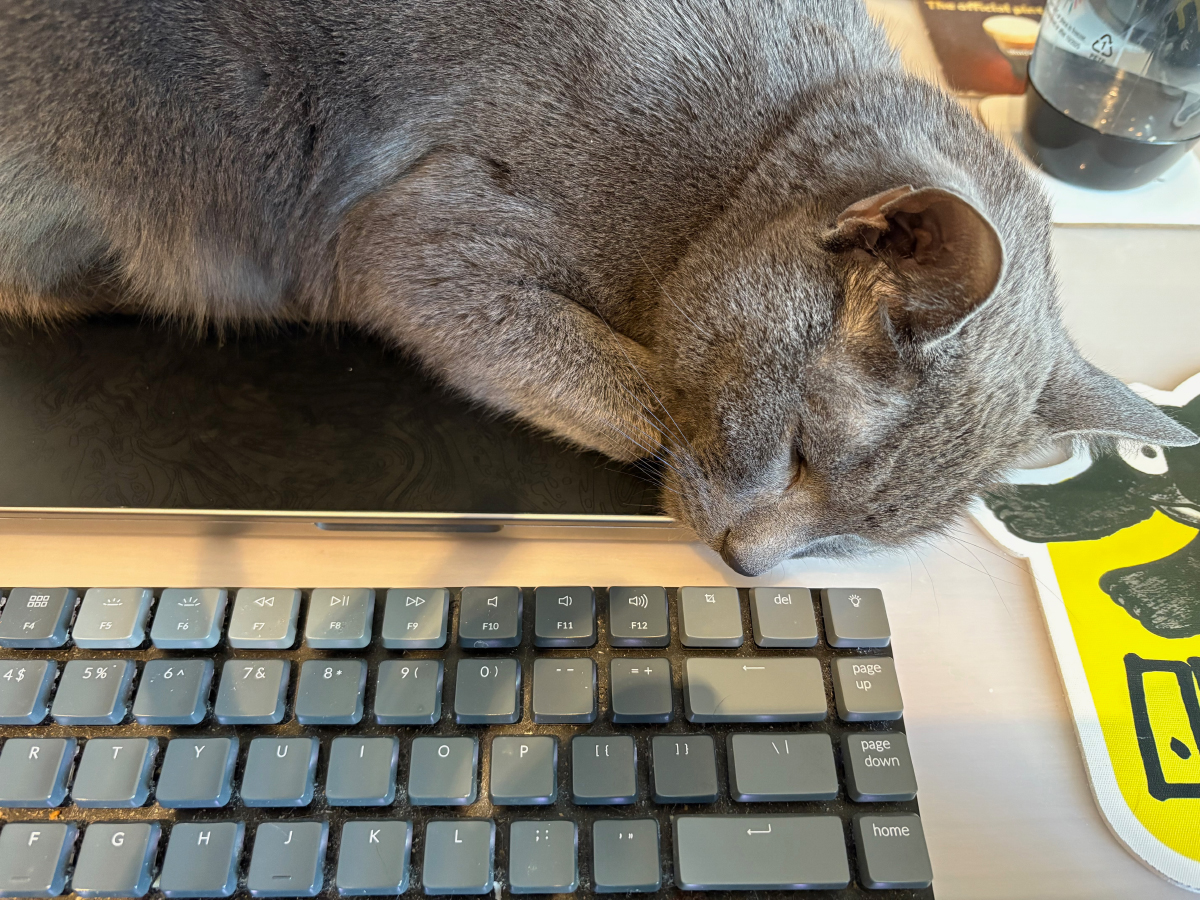Click to Skip Ahead
Have you ever been cuddling on the couch or bed when your cat starts licking the blanket? While watching your kitty knead the blanket is extremely cute, blanket licking can be downright disgusting. This is especially true if your pet leaves spit-soaked covers in their wake.
If you’re wondering why your cat is licking or sucking on your blanket, here are seven possible reasons behind this behavior, although most of them are still not fully understood.

The 7 Reasons Why Your Cat Licks Your Blanket
1. Pica or Other Health Disorders
Pica is a condition where animals feel the need to snack on inedible items. If your cat is trying to eat the carpet, blankets, or dirt, they may have pica. This may indicate an underlying medical condition, behavioral problem, or diet deficiencies. Without being treated, your pet can suffer from intestinal blockage if they actually swallow pieces of inedible materials or foreign bodies.
Other health conditions, such as a painful mouth due to dental problems, may also cause excessive licking and lip smacking, alongside drooling, awkward chewing, bad breath, and appetite changes. Make an appointment with your vet right away if you think your cat has pica, dental issues, or any other health issues.
If you need to speak with a vet but can't get to one, head over to PangoVet. It's an online service where you can talk to a vet online and get the advice you need for your pet — all at an affordable price!
2. Separated From Their Mothers Too Early
For cats that were separated from their mothers too early, they may feel a need to suck and lick at blankets. Kittens taken away from their mothers before they are 8 weeks old may be more prone to suckling later in life. A cat licking the blanket comforts and reminds them of the time they nursed from their mother, and it is often accompanied with kneading.
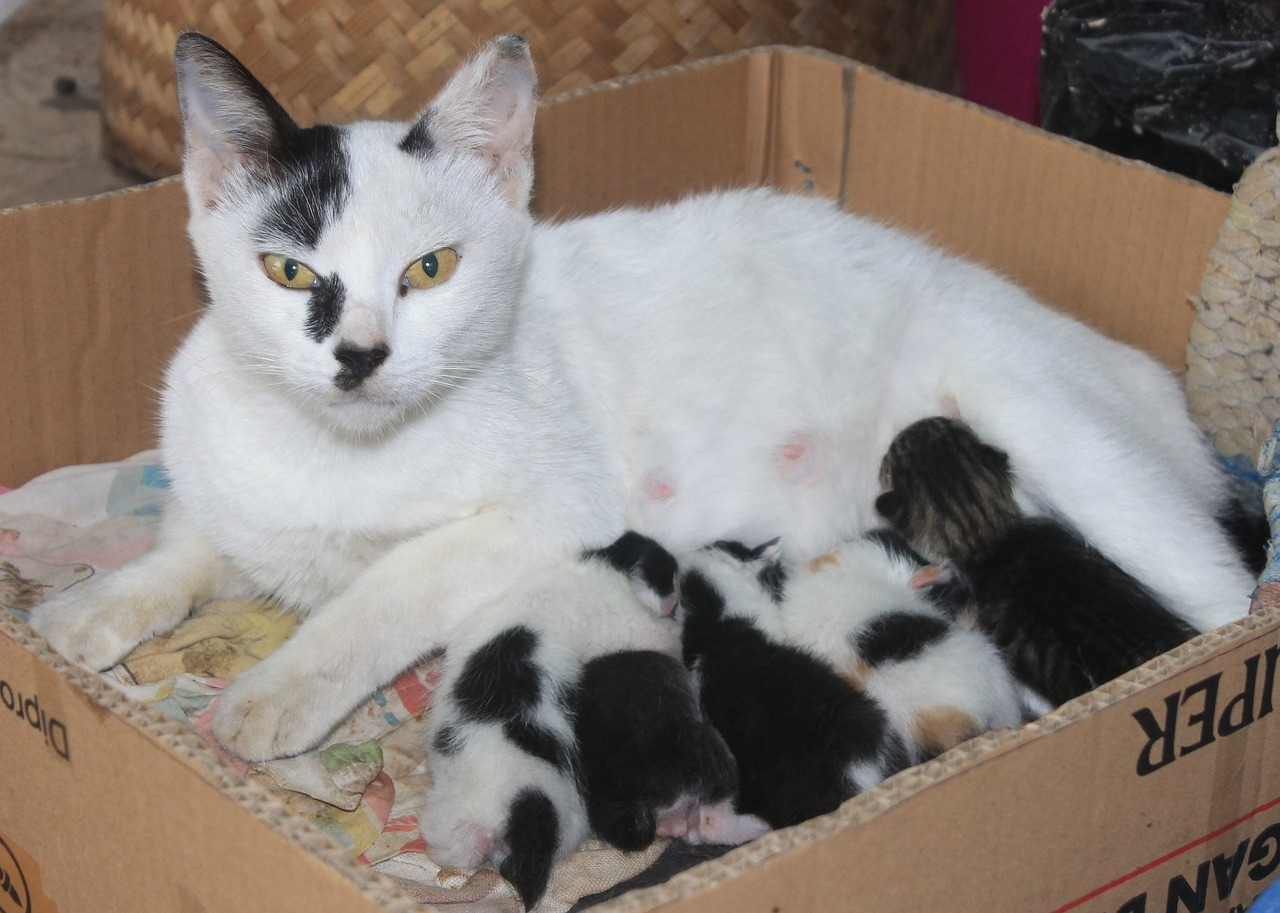
3. Food Stains
Did you drop a piece of food or spill a drink on your blanket and forget to clean it up? Those stains can entice your cat to lick the dirty blanket. Cats have a superior sense of smell and will be drawn to food and drink odors on bedding. Fortunately, there is an easy solution for this bad behavior. Simply pop your stained blanket into the wash. You can also spray cat-safe repellent scents onto the fabrics to discourage licking.
4. Anxiety
Some cats may excessively groom themselves or lick other items to self-soothe. If you’ve recently moved, changed your cat’s daily routine, or have introduced a new pet into the home, your kitty may be suffering from anxiety. To reduce their anxiety, try spraying calming pheromones throughout your home, or use a pheromone diffuser. Identify the stressor and try to minimize it or completely eliminate it. If the anxiety persists, consult your vet for help and advice.
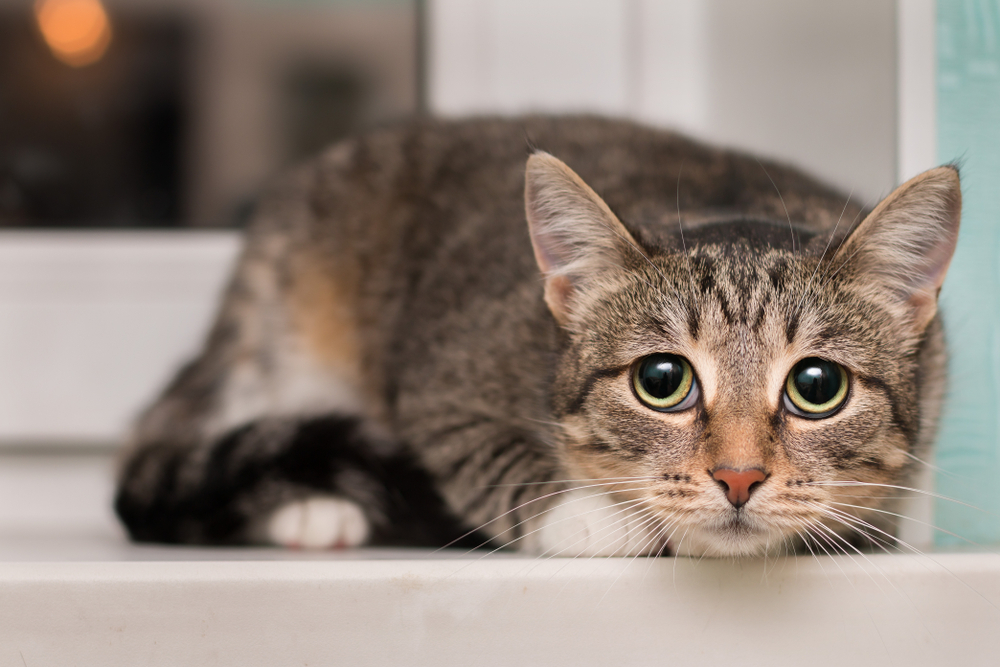
5. Certain Breed
Certain cat breeds, such as the Siamese and other Oriental cats, will be more inclined to lick fabric. This is also referred to as wool sucking and likely has a genetic predisposition. It is believed cats do this to comfort themselves because they enjoy it, are bored, or just want to do it for fun. Studies have shown that some risk factors for this behavior do exist and may include an abnormally increased appetite, underlying medical conditions in Siamese cats, small litter size, and early weaning in Birman cats.
6. Your Cat Is Happy
If your cat is extremely content, they may lick the blanket. This may be because your blanket carries your scent, or they feel safe and relaxed. This may be accompanied by kneading.
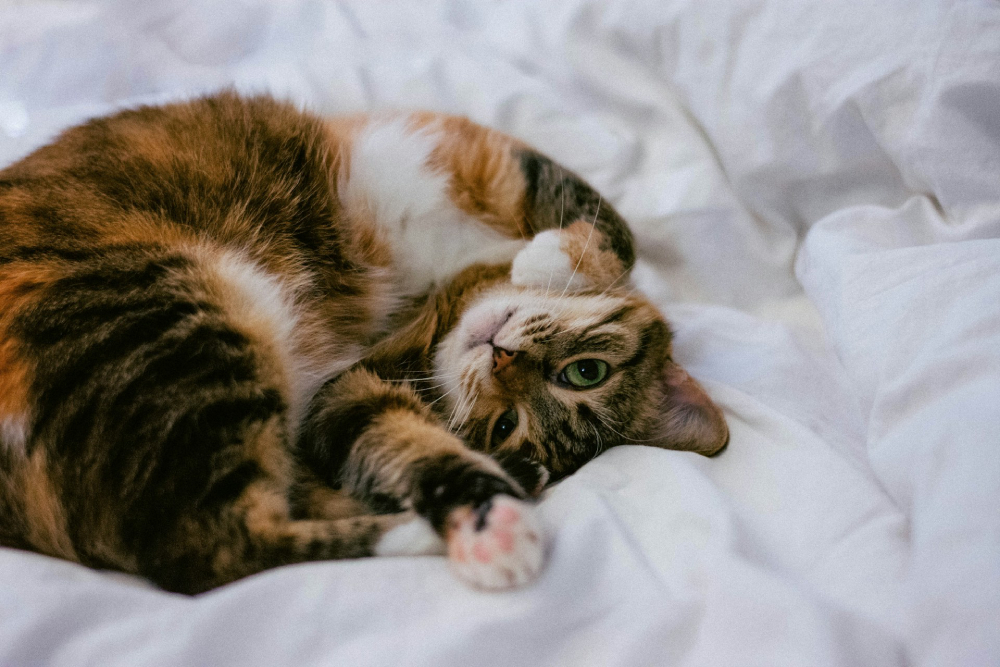
7. It’s Become a Habit
There may be no special meaning behind your cat’s odd behavior. They may lick blankets simply because they enjoy doing it, or it may be because they are bored.

Tips to Stop Blanket Licking
If your cat’s blanket licking is a new behavior or is becoming excessive, there are some steps you can take to reduce this behavior.
- Speaking to your veterinarian to rule out underlying health issues, such as oral pain, dental disease, and pica.
- Increasing your cat’s mental stimulation and physical exercise.
- Enriching their environment by providing plenty of toys, scratch posts, perches, and food puzzles.
- Identifying any stressors in their environment and eliminating or reducing them.
- Giving them a designated blanket they can use if it makes them feel better.
- Giving your pet high-value food rewards when they stop licking the blanket.
These simple tips can distract your cat from licking the blanket and also discourage the behavior. However, if your cat is doing this as a sign of relaxation, comfort, and happiness, respect their needs and do not stop the behavior that has a positive influence on them.

Conclusion
So, why do cats lick blankets? There are a variety of reasons for this behavior. From anxiety to a pica condition, feline fabric licking can be a sign of an underlying health issue. If you think something isn’t quite right with your cat, make an appointment with your vet right away.
If your cat licks blankets because they’re happy or enjoy doing so, it’s best to let them indulge in this self-soothing harmless behavior. You may even consider providing your cat with their very own blanket designated for licking. This will save you from sleeping in saliva-covered sheets and blankets. Always supervise your cat and make sure they don’t eat any pieces of the blanket accidentally or on purpose, as they pose a risk for gastrointestinal blockage.
See Also:
- Why Do Cats Eat and Chew on Paper? Reasons for This Behavior
- Why Do Cats Trill & What Does It Mean? Feline Behavior Explained
Featured Image Credit: GitanasD, Shutterstock

